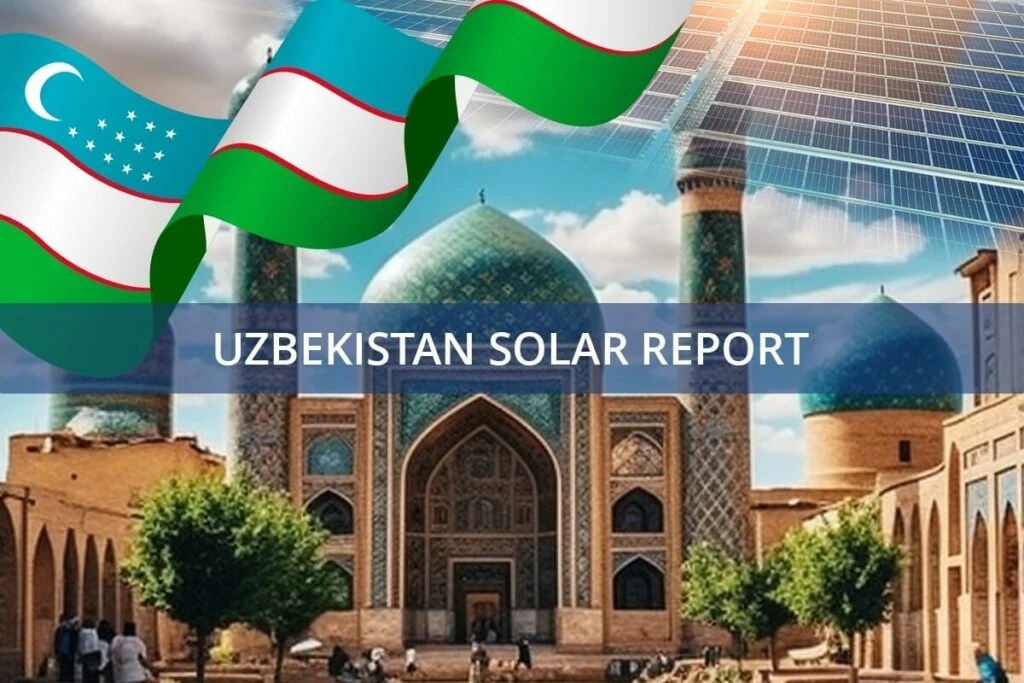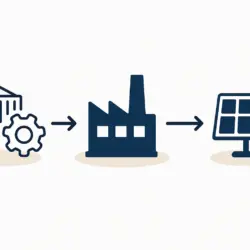Uzbekistan has secured a landmark $1.05 billion in financing for two pioneering solar and battery storage projects. Led by Masdar, the UAE-based renewable energy giant, these initiatives in Bukhara and Namangan signal a major leap forward in Central Asia’s clean energy transition.
Financing Details for Uzbekistan solar financing
Uzbekistan’s renewable energy ambitions have received a significant boost with $1.05 billion in financing for two major solar and battery storage projects. The projects, spearheaded by Masdar, a global leader in clean energy, are designed to fortify the nation’s energy infrastructure and accelerate its shift towards a sustainable economy.
The comprehensive financing package covers a 250 MW solar and 200 MWh battery storage project in Bukhara, valued at $600 million, and a 220 MW solar and 220 MWh battery storage project in Namangan, financed with $450 million. These projects were awarded to Masdar through Uzbekistan’s successful Public-Private Partnership (PPP) program, a framework that has been crucial in attracting international capital and expertise. Understanding the financial architecture of such large-scale endeavors provides insight into the overall solar panel manufacturing plant cost breakdown.
The Asian Development Bank (ADB) was instrumental in structuring the financing, providing a $200 million loan for the Bukhara project and a $150 million loan for the Namangan facility. The ADB also mobilized an additional $500 million in commercial co-financing ($300 million for Bukhara and $200 million for Namangan). The consortium of co-financiers includes prominent institutions such as Abu Dhabi Commercial Bank, BNP Paribas, First Abu Dhabi Bank, Standard Chartered Bank, and Sumitomo Mitsui Banking Corporation (SMBC).
Further support comes from the European Bank for Reconstruction and Development (EBRD), which contributed a $100 million loan, and the International Finance Corporation (IFC), which provided $100 million for the Bukhara project.
Impact on Uzbekistan’s Energy Sector
These projects represent a watershed moment for Uzbekistan’s energy sector as it diversifies away from fossil fuels. The integration of advanced battery energy storage systems (BESS) into both projects is a first for the country, demonstrating a firm commitment to adopting state-of-the-art renewable technology.
The BESS technology will be critical for enhancing grid stability, smoothing out power fluctuations common with solar energy, and delivering a more consistent and reliable electricity supply. This grid-scale application of battery storage mirrors the growing trend for residential systems in countries like Germany, where homeowners use batteries to store solar energy for evening use, enhancing energy independence. The successful integration of BESS here will serve as a blueprint for future renewable developments across the region.
The electricity generated will be sold to the state-owned JSC National Electric Grid under a 25-year power purchase agreement, ensuring long-term energy security. This entire development, from sourcing materials to final installation, relies on understanding the basics of solar panel manufacturing.
Global Investment in Uzbekistan’s Renewables
The Masdar projects are part of a larger wave of investment transforming Uzbekistan into a renewable energy hotspot. This trend is further highlighted by another massive project portfolio led by ACWA Power, which includes the development of 1 GW of solar power and 1,336 MWh of battery storage capacity in the Samarkand and Bukhara regions. This separate initiative is also backed by a consortium of international financiers, including the EBRD and Japanese partners like Sumitomo Corporation.
Together, these initiatives represent the largest private sector renewable energy investments in Uzbekistan to date. They underscore the country’s strategic goal to generate 30% of its energy from renewable sources by 2030. The sheer scale of these combined projects requires a massive supply chain, from the essential solar panel raw materials to the sophisticated machinery needed for production.
Masdar’s Growing Presence in Uzbekistan
Masdar has firmly established itself as a key strategic partner in Uzbekistan’s clean energy journey, with a growing portfolio of successful projects. The company’s continued investment highlights the strengthening collaboration between the UAE and Uzbekistan in advancing renewable energy.
These new projects are set to create hundreds of skilled jobs during the construction phase, which involves a complex solar panel manufacturing process, and will provide long-term employment in operations and maintenance. The environmental impact will be profound, with the projects expected to slash CO2 emissions by millions of tonnes over their operational lifetime, contributing significantly to Uzbekistan’s climate objectives.
With these landmark developments, Uzbekistan is not just meeting its domestic energy needs but is also positioning itself as a leader in the green transition, setting a powerful example for Central Asia and beyond.
To learn more about the intricacies of bringing solar energy projects to life, from initial concept to full-scale production, explore our free e-course.



